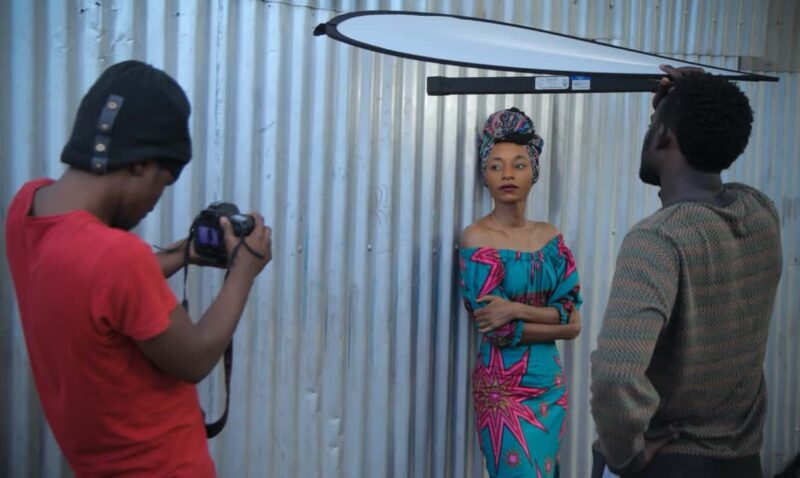“Believe,” an original song and music video, was created by youth living in Kakuma Refugee Camp with creative support from cellist Yo-Yo Ma.
The song offers a global call for hope and resilience rooted in the experiences of young refugees. Believe is written, composed, and performed by MLay Aza, Mercy Akuot, and Queen Lisa, with an accompanying music video created by the founder of Exile Key Films, Abdul Patient.
Believe is the result of a collaboration that began in March between cellist and UN Messenger of Peace Yo-Yo Ma, artists in Kakuma Refugee Camp, and FilmAid, now a project of Internews. The song is included of Yo-Yo Ma’s #SongsOfComfort campaign, an open call to share art that might give comfort in the face of the pandemic.
Watch the video now: Believe
Each of the artists fled violence in their countries of birth – Burundi and South Sudan – to find a new home in this remote camp in northwest Kenya, which houses roughly 200,000 people from 22 countries.
The artists’ strength, hope, and faith has enabled them not only to survive, but to forge global voices that demand respect for the fundamental rights of women, girls, and all human beings — the result is an inspiring call to unite in the face of a global crisis: “We are all equal, one blood,” they sing. “It’s by hope, peace and love, the only way we can overcome.”
“Making music with MLay and Mercy has given me an opportunity to empower girls to believe in themselves,” says Queen Lisa. Our song “Believe” is inspired by that same faith – our faith in each other, our faith in all women, and our faith in the grace God gives to all those who suffer and who need to feel love. With the entire world torn apart by COVID-19, I hope our voices can bring people together to end the suffering we are all experiencing.”
About Exile Key Films and the artists:
Exile Key Films was founded by Believe director Abdul Patient with a mission to express the unique perspectives of youth in Kakuma through film and music. Exile Key’s films have been shown at international film festivals, and music videos have won awards in Kenya, Africa and around the world.
Mercy Akuot fled violence in South Sudan in 2008, arriving first in Uganda with her family. At the age of 15, she escaped an arranged marriage and survived sexual assault. Unable to reconcile with her family, she fled to Kakuma alone at age 18. Since arriving, she has found artistic outlets in the camp, writing and recording an album in 2017, and was a featured speaker at TedX Kakuma Camp, telling her story of escaping violence and finding hope through music and work to support women and girls.
Mlay Aza was born in Burundi, in a family targeted by violence – her parents and grandmother were killed, and Mlay and her sister were lost in foster care, victims of forced labor, neglect, denial of education, and sexual abuse. They fled together to Kakuma without money or support, but found safety with a foster family, and a future through education and music. In Kakuma as a teenager, Mlay survived an abusive relationship and now lives to fight for her daughter, Montana, and to “sing for one purpose … to transform this world into a better place for women.”
Queen Lisa fled violence in Burundi with her mother, after the murder of her father and younger sister. In Kakuma, Queen Lisa’s mother disappeared; Queen Lisa believes she was a victim of violence that followed them from Burundi. In Kakuma, “Music been my sword and my shield,” she says. Alongside Mercy and Mlay, Queen Lisa has recorded with Octopizzo, a fellow refugee who has become one of the biggest stars in Kenyan music.
Mercy, Mlay, and Queen Lisa recently recorded an album together, Bado Mapema (It’s too Soon). On the title track, each takes a verse telling their own stories – in the chorus, they sing in harmony as one, demanding that violence against women and girls end.
About FilmAid
FilmAid was founded by independent filmmakers in 1999 in response to the refugee crisis in Kosovo. After more than two decades of innovation, FilmAid has become a leader in amplifying the voices of displaced youth and providing life-saving information to communities in need. In 2020, FilmAid became a project of Internews.
